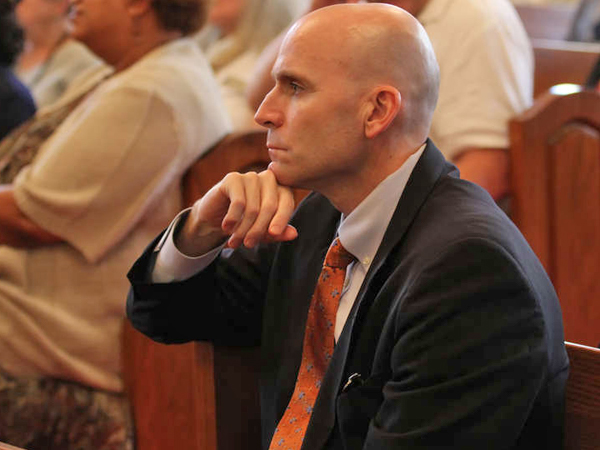District Attorney Explains Road Rage Assailant’s Third-Degree Murder Plea

Publisher’s Note: On Wednesday evening, local, regional, and national news sites lit up with news that David Desper, the Delaware County man accused of fatally shooting Bianca Roberson, 18, a recent graduate of Bayard Rustin High School, as the two jockeyed for position where Route 100 merges onto Route 202 in West Goshen last June, pled guilty to third-degree murder and possessing an instrument of crime, charges that carry a statutory maximum of 40 years in prison.
According to Philly.com, Rodney Roberson, the victim’s father,”after much soul-searching,” accepted the plea-bargain. However, as observed on social media, some members of the extended Roberson family and the Chester County community, lashed out about Desper not facing first-degree murder charges.
On Thursday afternoon, in an effort to explain both the legal reason, as well as the process that led to third-degree charges, District Attorney Tom Hogan posted the following explanation of both the law as well as the process leading up to Desper’s plea on Facebook.

By Tom Hogan, Chester County District Attorney
In the context of David Desper pleading guilty to third degree murder of Bianca Roberson, several people have asked for an explanation of the degrees of murder, beyond the quick coverage by the media. That is a good and fair question. So, without making it law school complicated, here is basically how the degrees of murder work.
First degree murder is premeditated murder. In other words, the Commonwealth has to show that the murder was planned or done by “lying in wait” in an old-fashioned term. A classic example is the husband who plans to murder the wife who is divorcing him and then carries out the plan. We always knew that first degree murder might be difficult to prove in the Desper case because of the factual circumstances (two people who had never met, a sudden interaction, one shot, etc.).
Second degree murder is often called felony murder. It happens when somebody is intentionally killed in the course of a different violent felony. For instance, four people go to rob a bank, and in the course of the robbery a security guard is shot and killed. All four people are then guilty of second degree murder, because of the violent felony (robbery) plus the murder. There was no separate predicate felony in the Desper case that qualified for second degree murder.
Third degree murder is an intentional killing with malice, but not requiring premeditation (first degree) or another felony (second degree). Malice is a willful and wanton disregard of an extremely high risk that the conduct will result in death. This was the likely result of a trial in the Desper case.
Finally, there are voluntary and involuntary manslaughter. These consist of killing another person when acting under a sudden and intense passion or a death caused by doing an unlawful act in a reckless or grossly negligent manner. The defense counsel for Desper had asked for a jury instruction on manslaughter and presumably intended to argue that the defendant was guilty of one of these lesser offenses.
Just as first degree murder might have been difficult to establish under the facts of this case, the facts most likely would not have supported just a manslaughter conviction. However, a jury could find the defendant guilty of any combination of charges or of nothing at all; that is the nature of the jury system.
That is a quick and broad summary of the law here. You can get into a lot more detail, and in a trial the jury instructions go on for a while, but those are the basics. Thanks for everybody who asked.
Two other quick points. First, the assigned prosecutors, Michelle Frei and Chris Miller, and the police involved, West Goshen PD and Chester County Detectives, did an outstanding job in investigating and preparing this case. They worked tirelessly to put the case together and prepare for trial. They never made a plea offer, instead waiting until the defendant offered to plead guilty. Only then did they talk with the family about the plea option.
Second, Bianca’s parents, Rodney and Michelle Roberson, deserve a tremendous amount of praise and respect for the enormous strength that they have shown throughout this process. They trusted the police to catch the defendant, even when it looked like it might never happen. They listened thoughtfully and asked all of the right questions about the plea option when it came up.
And even after they told the police and assigned prosecutors that the plea should be accepted, I asked them to meet with me personally so that I could hear their thoughts and reasoning. Those meetings are tough on everybody and I cannot imagine the pain of a parent who has lost a child. As Rodney said, nothing can bring Bianca back, nothing we can do and nothing the defendant can do, and that is the only thing that would ease the pain.
We all weep for Bianca. Everybody please support Rodney and Michelle as we now move forward to sentencing.
Connect With Your Community
Subscribe to stay informed!
"*" indicates required fields






![95000-1023_ACJ_BannerAd[1]](https://vista.today/wp-content/uploads/2023/03/95000-1023_ACJ_BannerAd1.jpg)









































